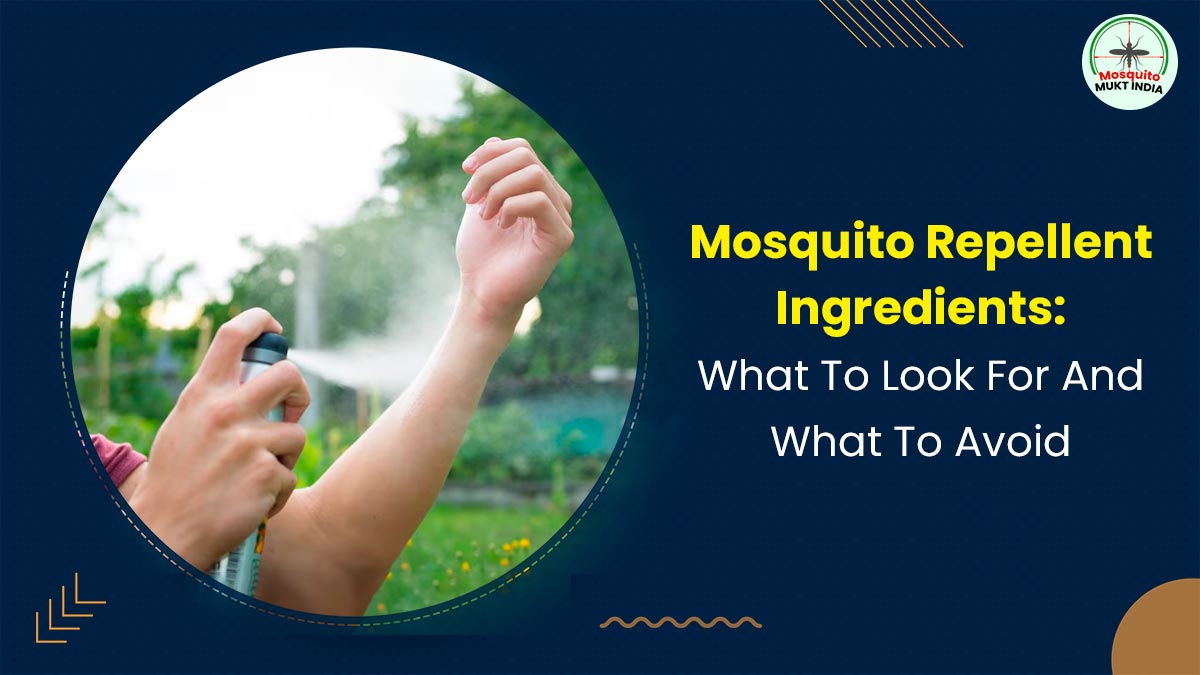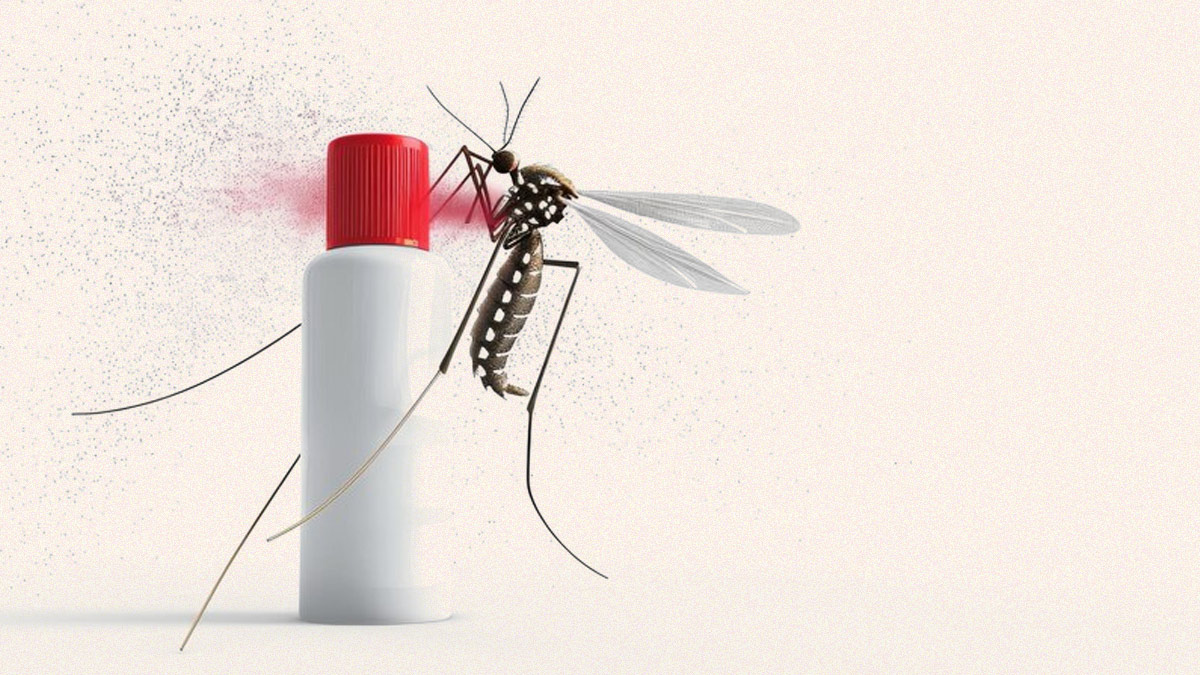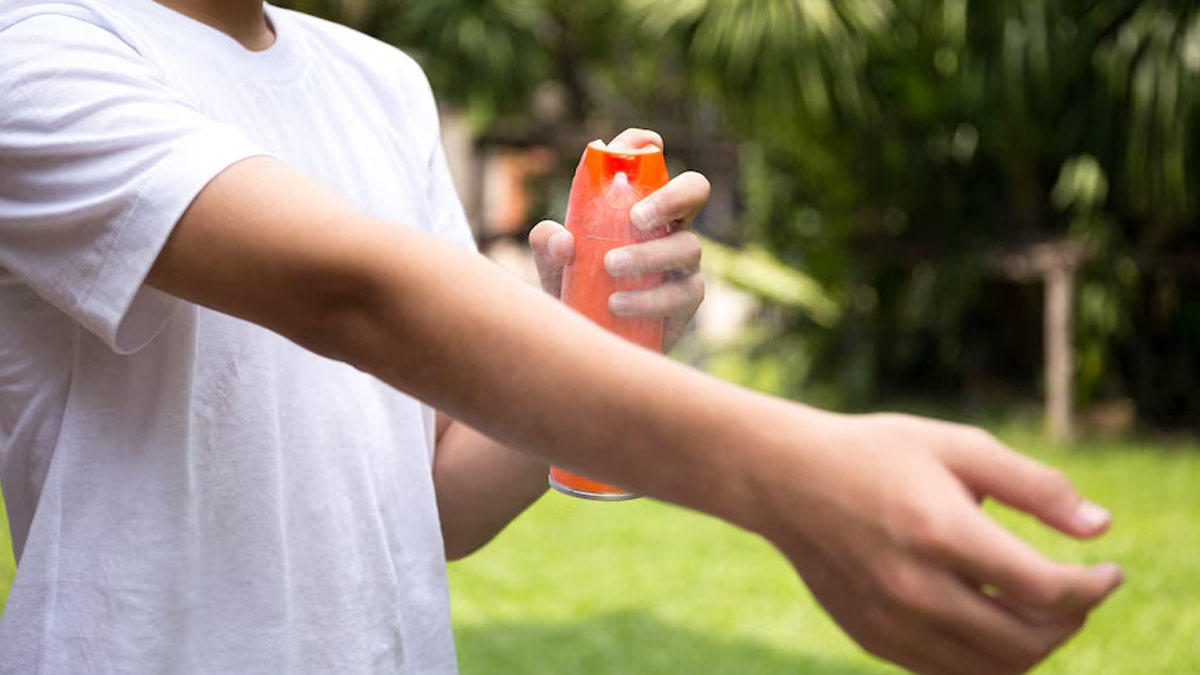
Mosquito repellent is a substance applied to skin, clothing, or other surfaces to discourage mosquitoes from landing on or biting the treated area. Mosquitoes are not just a nuisance; they can carry diseases, such as malaria, dengue fever, Zika virus, and West Nile virus, making effective mosquito repellents essential for personal protection, especially in areas where these diseases are prevalent.
Table of Content:-
This year on World Mosquito Day, OnlyMyHealth launched the "Mosquito-Mukt" campaign to raise awareness of mosquito-borne diseases and their preventive methods. We spoke to our expert Dr Chinjitha T Davis, Associate Consultant – Dermatology, Manipal Hospital, Goa, who highlighted the importance of choosing the right repellent to ensure safety and effectiveness.

According to a 2021 study, applying mosquito repellents is a valuable practice for personal protection, helping to reduce or prevent the spread of various insect-borne diseases. These repellents are volatile chemicals that, when applied to the skin, deter mosquitoes by causing them to move away from the treated area, thereby minimising contact and bites.
“Mosquito repellents work by either masking the human scent that attracts mosquitoes or emitting a scent that mosquitoes find unpleasant. When applied to the skin or clothes, these repellents create a barrier that makes it difficult for mosquitoes to locate or feel attracted to a person,” said Dr Davis.
Types Of Mosquito Repellents
There are numerous varieties of insect repellents on the market, such as:
.jpg)
- Topical Repellents: Lotions, creams, sprays, and wipes are directly applied to the skin. These are the most common forms of mosquito repellent.
- Wearable Repellents: Repellent-infused wristbands, patches, or clip-on devices emit a vapour that repels mosquitoes, though these are generally considered less effective than topical applications.
- Spatial Repellents: To establish a mosquito-free zone in a certain location, candles, coils, and electrical devices discharge a repellent into the atmosphere.
- Treated Clothing: Clothing treated with insect repellent (permethrin) offers protection without needing to apply chemicals directly to the skin.
Also Read: Prevention Of Mosquito-Borne Diseases: How To Reduce Mosquito Breeding During Monsoon
What to Look For In Mosquito Repellents?
Dr Davis listed some ingredients which can be looked for in mosquito repellents:

1. Active Ingredients
- DEET (N, N-Diethyl-meta-toluamide): Well-known and effective; safe when used according to instructions.
- Picaridin: An alternative to DEET, less likely to cause skin irritation. It is also odourless and non-greasy, making it a preferred choice for some people.
- Oil of Lemon Eucalyptus (OLE): A natural option with effectiveness similar to lower concentrations of DEET. It is a good alternative for those who prefer natural products.
- IR3535: Often used in Europe, this ingredient is safe and effective against mosquitoes, ticks, and other biting insects.
2. Concentration
Higher concentrations provide longer-lasting protection. For example, 20-30% DEET is typically recommended for most outdoor activities.
3. Formulation Type
- Lotions, sprays, or wipes: Consider what’s most convenient for application.
- Long-lasting formulas: Some formulations are designed to last longer, reducing the need for reapplication.
4. Safety Certifications
Products approved by agencies like the Environmental Protection Agency (EPA) or your local regulatory body.
Also Read: Mosquito-Mukt India: Understanding The Types Of Mosquito-Borne Diseases And How They Spread
What to Avoid In Mosquito Repellents?

- High DEET Concentration for Children: Avoid using products with more than 30% DEET on children, especially those under 12. Do not use DEET on infants under two months old.
- Unproven Natural Products: Some natural repellents (citronella, lavender) are less effective or unproven in clinical studies.
- Expired Products: Check expiration dates, as the efficacy of active ingredients may diminish over time.
- Combining Repellents with Sunscreen: Avoid combination products, as they may compromise the effectiveness of either sunscreen or repellent. Instead, apply sunscreen first, then repellent.
- Aerosols: Avoid aerosol sprays, especially in windy or confined spaces, as they can be easily inhaled.
- Avoid spatial repellents in those with respiratory problems: For individuals with asthma or allergies, personal repellents (lotions or sprays applied to the skin), protective clothing, mosquito nets, etc, might be safer alternatives to spatial repellents.
- Avoid or be cautious with pyrethroids (found in coils and sprays), DEET (use low concentrations, avoid inhaling), burning repellents (release formaldehyde/volatile organic compounds), strong fragrances/essential oils (citronella), aerosols (contain respiratory irritants).
In the case of using spatial repellents:
- Don’t use it in enclosed spaces or in the bedroom before sleep. Always ensure proper ventilation.
- Don’t place repellents near breathing zones, such as beds, couches and workspace.
- Don’t use products with strong scents.
- Discontinue use immediately, if someone with asthma or allergy, begins to experience symptoms like coughing, wheezing, shortness of breath, etc.
General Advice To Follow
- Before full application, do a patch test on a small skin area to check for irritation.
- Consider wearing treated clothing or gear as an additional layer of protection.
- Repellent should not be applied to broken or irritated skin.
- Keep repellent away from the eyes and mouth.
- Reapply repellent as necessary, particularly after perspiring or swimming.
[Disclaimer: This article contains information provided by an expert and is for informational purposes only. Hence, we advise you to consult your own professional if you are dealing with any health issues to avoid complications.]
Also watch this video
How we keep this article up to date:
We work with experts and keep a close eye on the latest in health and wellness. Whenever there is a new research or helpful information, we update our articles with accurate and useful advice.
Current Version